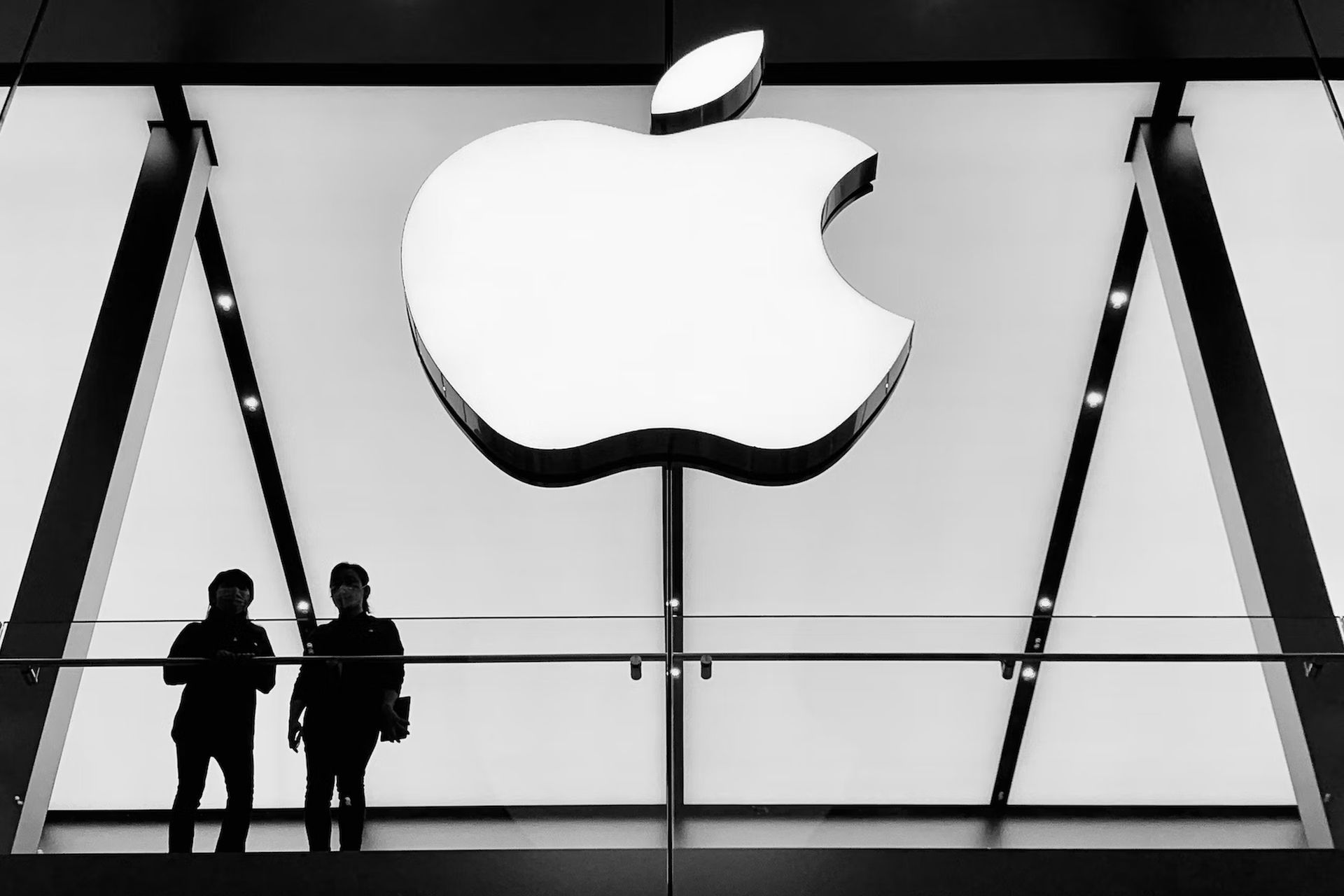In a move that’s causing waves across the technology sector, an App Store antitrust class-action damages claim has been filed against Apple on behalf of developers based in the United Kingdom. The lawsuit seeks a hefty compensation of up to £800 million (exceeding $1 billion), accusing the tech behemoth of leveraging its dominant position. Apple’s so-called “anticompetitive” 30% fee on in-app purchases made by app creators via the iOS App Store is at the heart of the issue. The suit also contends that UK consumers are inadvertently disadvantaged as developers, deprived of much-needed funds, are unable to invest in Research and Development, thereby impeding the evolution of app innovation.
Apple targeted with an App Store antitrust
The class action is being spearheaded by Sean Ennis, a professor of competition policy at the University of East Anglia. Ennis, who boasts a distinguished career with positions held at organizations like the OECD, U.S. Department of Justice, and European Commission, is advocating for over 1,500 UK-based developers in this App Store antitrust case.
With years of experience examining competition-related matters, particularly within the digital sphere, Ennis brings a unique perspective to the table. Speaking to TechCrunch about his motivations behind the lawsuit, he shared, “I have been studying competition questions for decades — and digital competition for quite a long time. I’ve written about it in technical economic papers but also in less technical work. And I’m really convinced that the type of behaviour we’re talking about in this case is deeply problematic. So I was interested in taking a role to help get some redress for those who I feel have been harmed by the behaviour.” Ennis’s effort is backed financially by UK litigation funder, Harbour.

Structured as an opt-out class action, this App Store antitrust lawsuit enables UK-based developers to be automatically included in any potential compensation, negating the need for registration. If the plaintiffs emerge victorious against Apple, the payout for each developer would be calculated based on their iOS app business. As such, the compensation could greatly vary, with some potentially raking in millions of pounds.
The litigants’ core argument is one we’ve heard before. Prominent players like Spotify and Epic have long protested against what they term as Apple’s unfair “tax,” launching their complaints about its App Store policies and fees in both regulatory bodies and courts on both sides of the Atlantic. Tesla and SpaceX CEO Elon Musk has even termed Apple’s commission on in-app purchases as a de facto global tax on the internet.
However, Apple routinely refutes these accusations of exploiting developers, asserting that the fees it imposes facilitate the delivery of a superior experience to iOS users. The company highlights the rigorous review process involved, encompassing security and privacy checks among other quality controls. Yet, despite such precautions, scams still occasionally infiltrate the system, as highlighted in a previous developer lawsuit related to the App Store, which Apple settled last year.
Nonetheless, a significant number of developers persist in advocating the counter-argument: claiming Apple’s fee as unjust. They challenge both its inconsistent application (with certain apps or content types being charged while others aren’t) and the scale of the cut taken. While Apple did reduce its fee to 15% for the first $1 million in revenue in 2020, developers exceeding that threshold are typically subject to the “standard” 30% cut.

This UK lawsuit is set to scrutinize these arguments, seeking compensation for developers who claim to have suffered due to Apple’s alleged abusive and anticompetitive practices.
Backed by the law firm Geradin Partners, Ennis is gearing up for a legal showdown. In a conversation with TechCrunch, partner Damien Geradin outlined their primary focus points. He noted the non-uniform application of Apple’s fee, stating that only 16% of apps are subject to it due to Apple’s inconsistent rules concerning commission charges on digital content apps. He pointed out that apps like games, news, and streaming services often bear the brunt of the charge, while others seem to evade the radar.
Another contention highlighted by Geradin is the additional annual fee of $99 that developers are expected to pay to Apple. He suggested that developers are increasingly obliged to pay for search ads on the platform to have any hope of their apps being discovered by iOS users. Essentially, he argues that Apple has multiple channels through which it monetizes the store.
“One critical element is that even if the fee was zero, the same App Store would exist because Apple couldn’t sell a single device without valuable apps such as Tinder, Spotify, Netflix, news apps, game apps and the like,” Geradin contended. He believes that the creation of a distribution monopoly allows Apple to impose such significant commission fees.
The fine print of App Store’s Terms and Conditions, along with their fairness, are currently under scrutiny by numerous competition regulators, including the UK’s Competition and Markets Authority (CMA), which initiated its probe in March 2021.
In some regions, including Europe and Asia, enforcement actions have been undertaken by regulators that focus on the terms of payment services in the App Store. These actions have compelled Apple to allow third parties to use alternative payment processors, which has had a limited impact on the fees charged by Apple. However, it’s fair to say that Apple has yet to face a serious regulatory reckoning over the 30% charge.
Damages lawsuits, however, may potentially cause a shift in behavior. Still, verdicts (and any substantial payouts for developers) from cases like this one could take multiple years.

By initiating their legal action now, the plaintiffs hope that their lawsuit can be linked with an existing consumer damages-focused App Store suit – namely, Dr. Rachael Kent v. Apple, which was filed in 2021. This case is seeking £1.5 billion in damages on behalf of UK consumers and is currently awaiting trial at the Competition Appeal Tribunal.
When questioned about the timing of their suit and why they chose not to wait for the CMA’s App Store investigation to conclude before litigating, they suggested that they didn’t need to wait for further evidence of harm from competition regulators. They cited the scrutiny work already undertaken in some jurisdictions, including a major mobile market ecosystem study recently completed by the CMA.
“If you look at the CMA mobile ecosystem market study, released a few months ago, you’ll see exactly the same findings. You see that the profitability of the App Store is between 75% and 100%. It’s literally an ATM. It’s a money printing machine. And we take issue with that. And so we don’t discuss that they provide a service but not to the tune of 30% commission collected in a discriminatory manner,” stated Geradin.
The litigants have also referred to economic analysis by Compass Lexecon, which they claim demonstrates how Apple’s market dominance has generated “extraordinary and excessive profits at the expense of the value provided by app developers.”
“A report to the US House Judiciary Committee’s Subcommittee on Antitrust, Commercial and Administrative Law states that Apple’s net revenue from the App Store alone was estimated to have been about $15BN in 2020, rising to $18.8BN in 2022. According to the same report, Apple’s former Senior Director of App Store Review confirmed running costs for the App Store were less than USD $100M a year,” they shared in a press release.
Geradin expects the legal discovery process to yield any additional relevant data needed to support their claim on behalf of UK-based iOS developers.

Meanwhile, the CMA’s case against Apple’s App Store is yet to yield any public enforcement despite more than two years of investigation. Recent notifications indicate extensions to review and analysis timelines for examining the collected intel, but when a decision might be made is unclear. There are no statutory deadlines for such cases, so the CMA can extend an investigation if it believes it necessary for a thorough review.
“You never know with competition authorities,” Geradin remarked, explaining their decision not to wait for the CMA’s verdict. He stressed that their lawsuit seeks compensatory damages for past alleged anti-competitive wrongs by Apple, while competition authorities tend to focus on preventing future misconduct.
“[The CMA] may request Apple to change behaviour but it does nothing for the past. Whereas a damages claim is for the past, and we think that the app developers have been taken advantage of and they should be compensated for past actions. So these are complementary tools,” he stated. “But also, we don’t know what the scope of the CMA investigation is about — the CMA has been very quiet and sort of discreet about what they’re looking at.”
In recent years, numerous UK class-action suits have been launched, largely unsuccessfully, against major tech firms for breaches of privacy law. However, these may not provide much guidance on how competition class actions could play out. When asked about this, the litigants expressed confidence in establishing commonality as “all our developers that sell digital content are treated in the same way,” according to Geradin. They also suggested that proving harm linked to antitrust abuse should be more straightforward than in privacy cases where arguments about harms and impacts can be more subjective.
“There’s a lot of commonality to the damage here because we’re talking about a 30% commission. So compare that to the harm that you suffer from a privacy violation compared to someone else . . . I’m not going to speculate about the facts of those cases but, here, the commission level is just known and common, and that makes some aspects of forming a class easier,” Ennis stated.
Success in this App Store antitrust case could redefine the operation of digital marketplaces.
Featured image credit: James Yarema/Unsplash





